10 jobs where robots replace humans
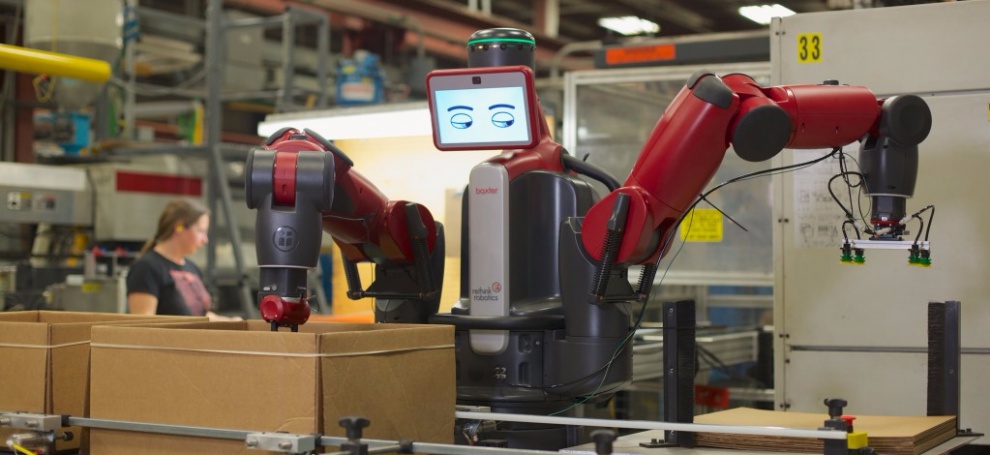
The debate about whether robots will replace people in certain jobs is not new. A study by the Nomura Research Institute, which is a Japanese think tank, and the University of Oxford , showed that in the period from 10 to 20 the next years, almost half of the jobs in Japan can be replaced by robots and artificial intelligence.
According to standards set by researchers, if more than 60 percent of the workflow can be accomplished using a robot or artificial intelligence , it falls into the “replaceable” category.
Similar studies were conducted by scientists from the University of Oxford in the UK and the USA, and the ratio of “work to be replaced” reached 35 and 47 percent, respectively.
')
Let's look at the top 10 jobs that are in this risk group.
Bartender
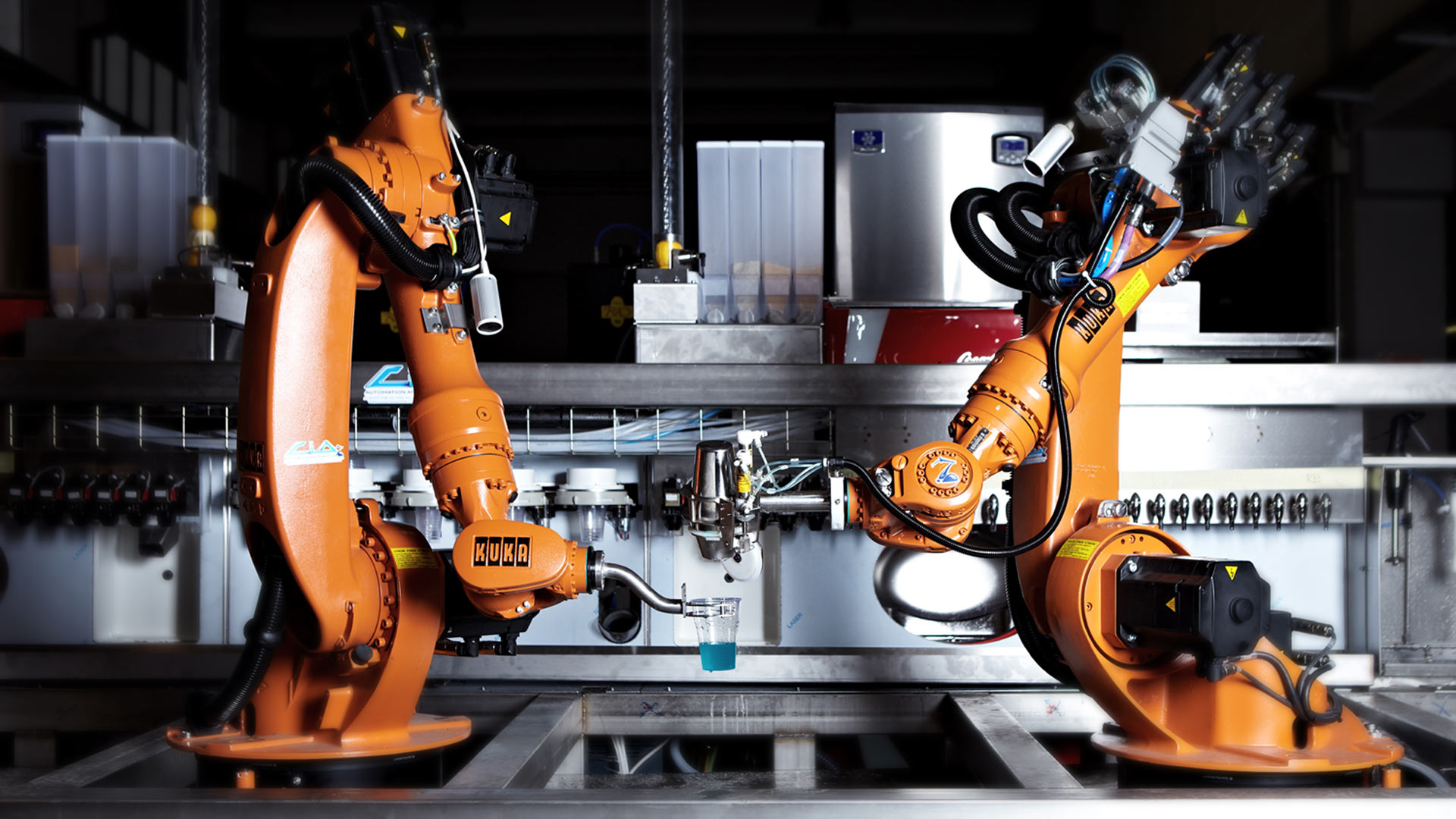
The luxury cruise "Quantum of the Sea" from Royal Caribbean International has already hired bartenders to work with robots who mix drinks for guests on board. A robot named Monsieur knows the recipes of 300 cocktails and can make a drink in a few seconds.
Pharmacist
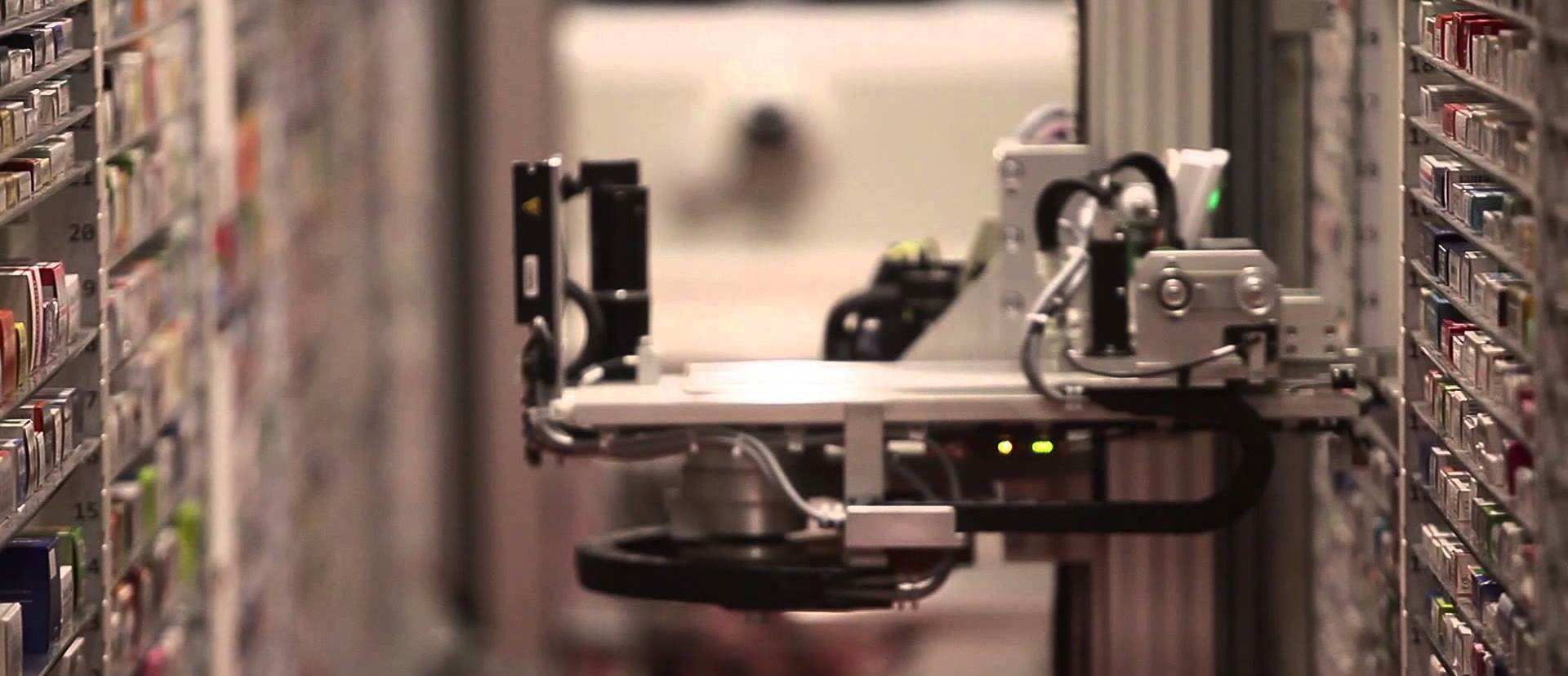
The University of California, San Francisco (UCSF) uses robots to dispense drugs. When a device receives a recipe, robots are responsible for packaging and distribution. Robotic pharmacists can make sure that the drugs that patients receive will not cause adverse reactions in combination with medications currently taken by patients. And MTS Medication Technologies developed the Omnicell M5000 robot , which prepares sets of medicines individually for each patient and distributes them into special “pockets” for a few days taking the medicines.
Sapper
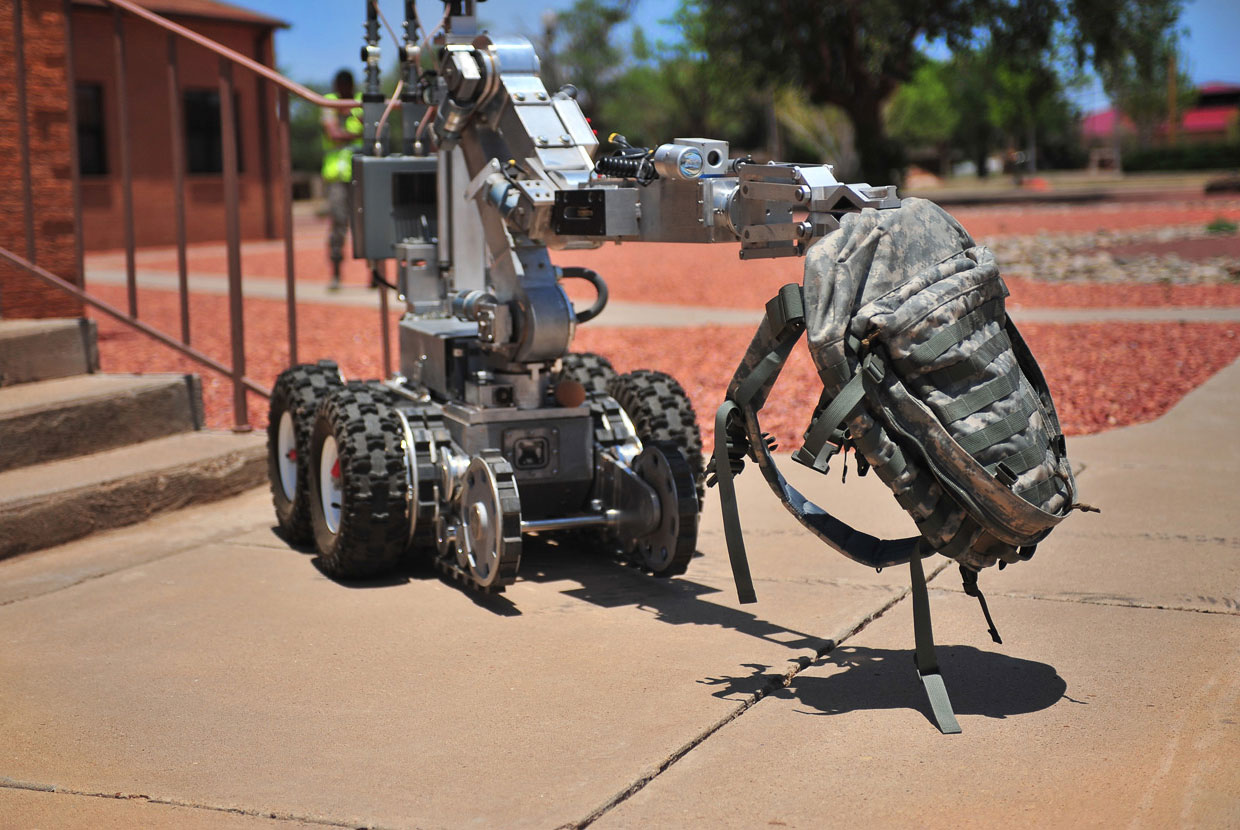
According to statistics from the US federal government, there are more than 450 units in the country dealing with thousands of bomb-related issues. Some of them use robots to reduce risks.
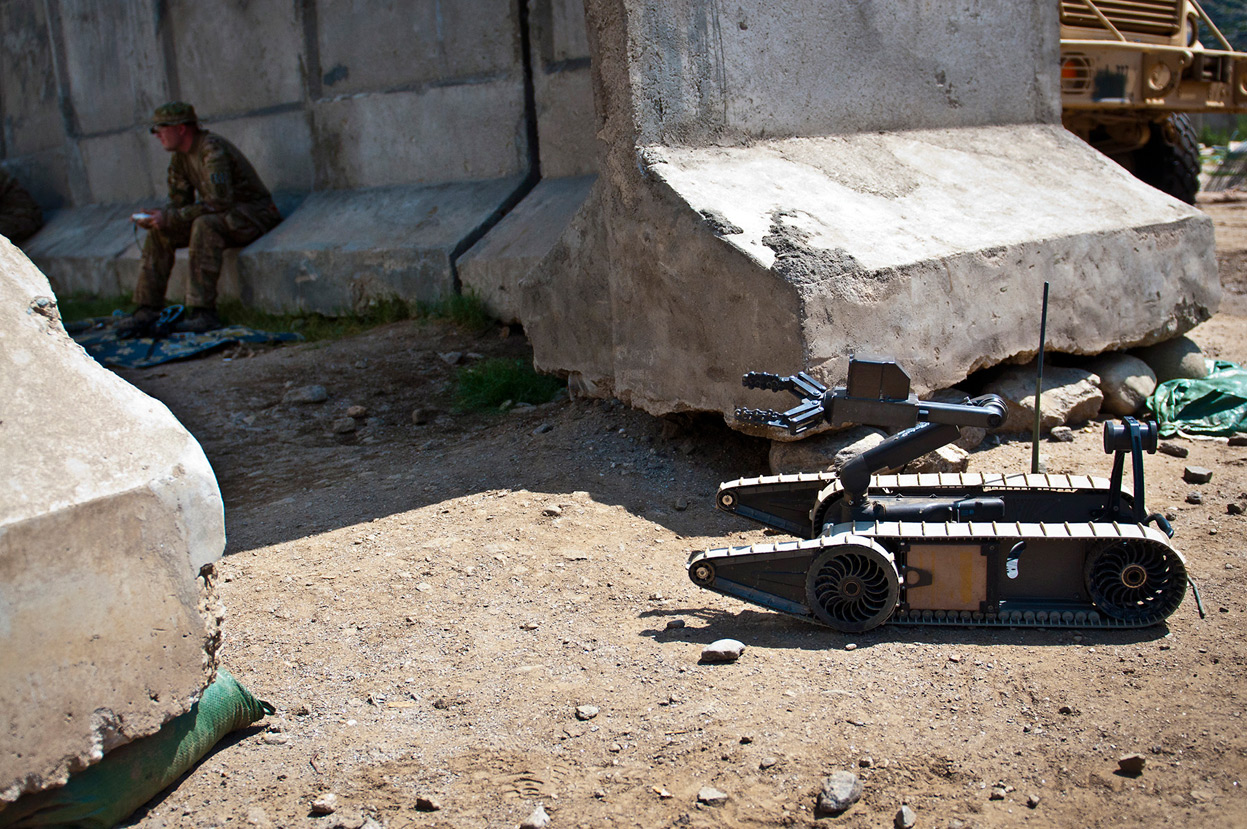
Robot sapper in Afghanistan. Designed for the disposal of ammunition.
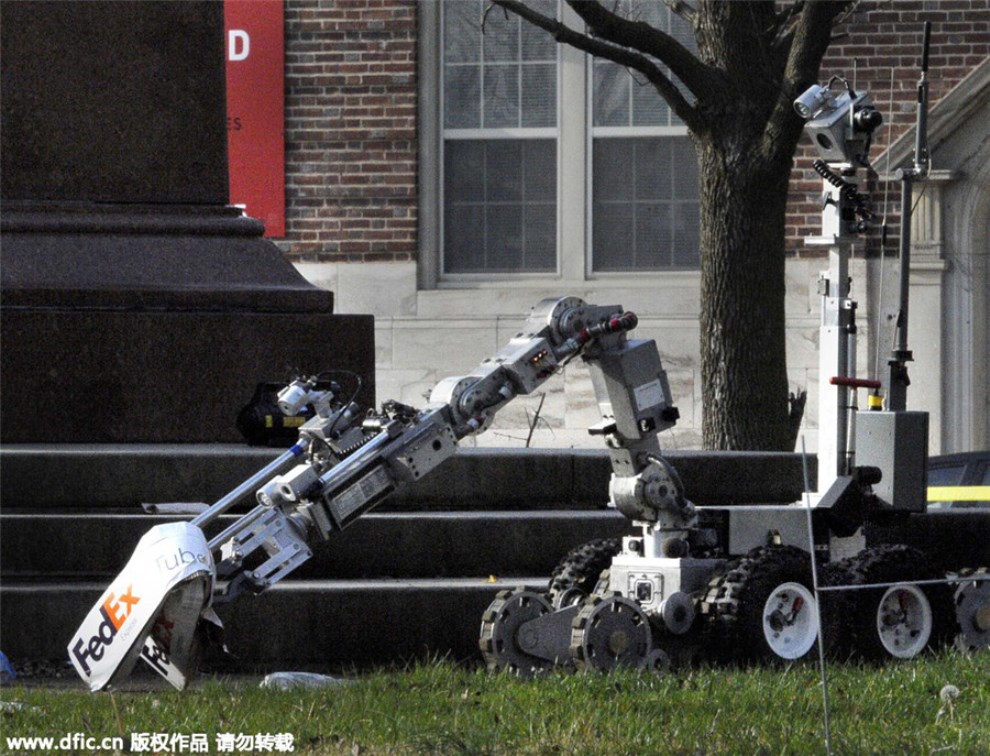
A robot managed by the Baltimore Police Unit opens the second of two suspicious packages left at the Confederation Monument in Baltimore on December 12, 2015.
Cleaner

Robotic cleaners appeared relatively recently, but already widely known in households. Users say the results are significantly higher than traditional vacuum cleaners. The iRobot company, for example, has already sold more than 10 million such devices.
There are several window cleaning robots, including HOBOT and WINBOT, which automatically scan and calculate the size of the window, and then calculate how to clean the glass most efficiently and quickly.
Bank teller
In the 16 branches of the Coastal Federal Credit Union, customers will not see a single clerk, since all their work is performed by robotic bank tellers. According to the official representative of the bank, the introduction of robots led to a 40 percent decrease in the number of hired cashiers. And such banking operations, as the issuance of credits, will soon be completely automated .
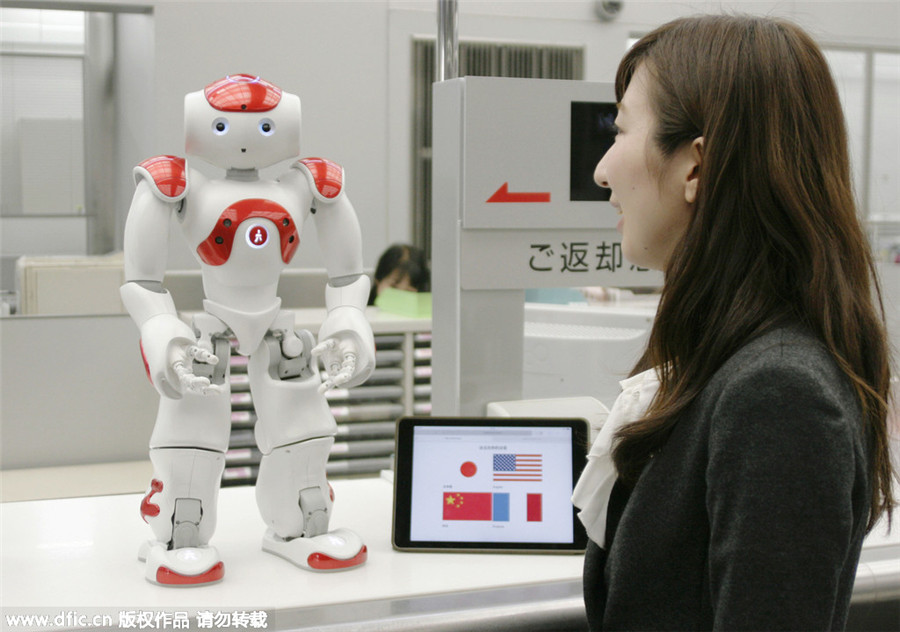
Bank of Tokyo-Mitsubishi is testing a robotic worker at the NAO reception in Nagoya, Japan, October 26, 2015 [Photo / IC]
Warehouse employee
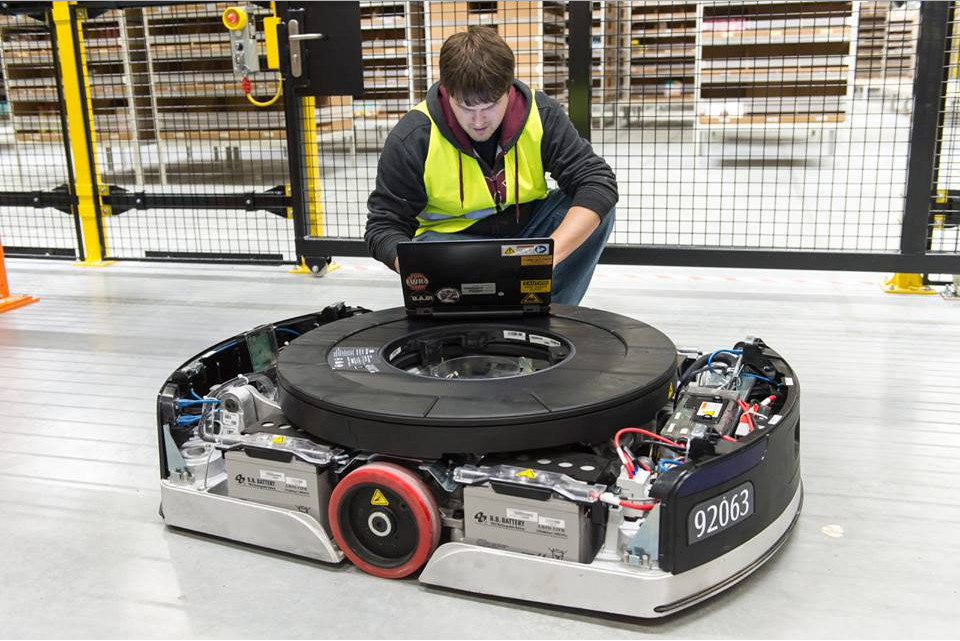
In the Amazon logistics center, robots work together with employees at a warehouse in Belyany-Wroclaw, near Wroclaw, Poland, October 15, 2015 [Photo: PAP / Maciej Kulczyński]
There are robots that are designed to automate logistics in places such as warehouses. For example, Fetch and Freight are designed for work in small warehouses.
Amazon.com has its own army of robots working in the company's warehouse . With their help, an employee can scan 300 units per hour, compared with 100 units earlier.
Soldier
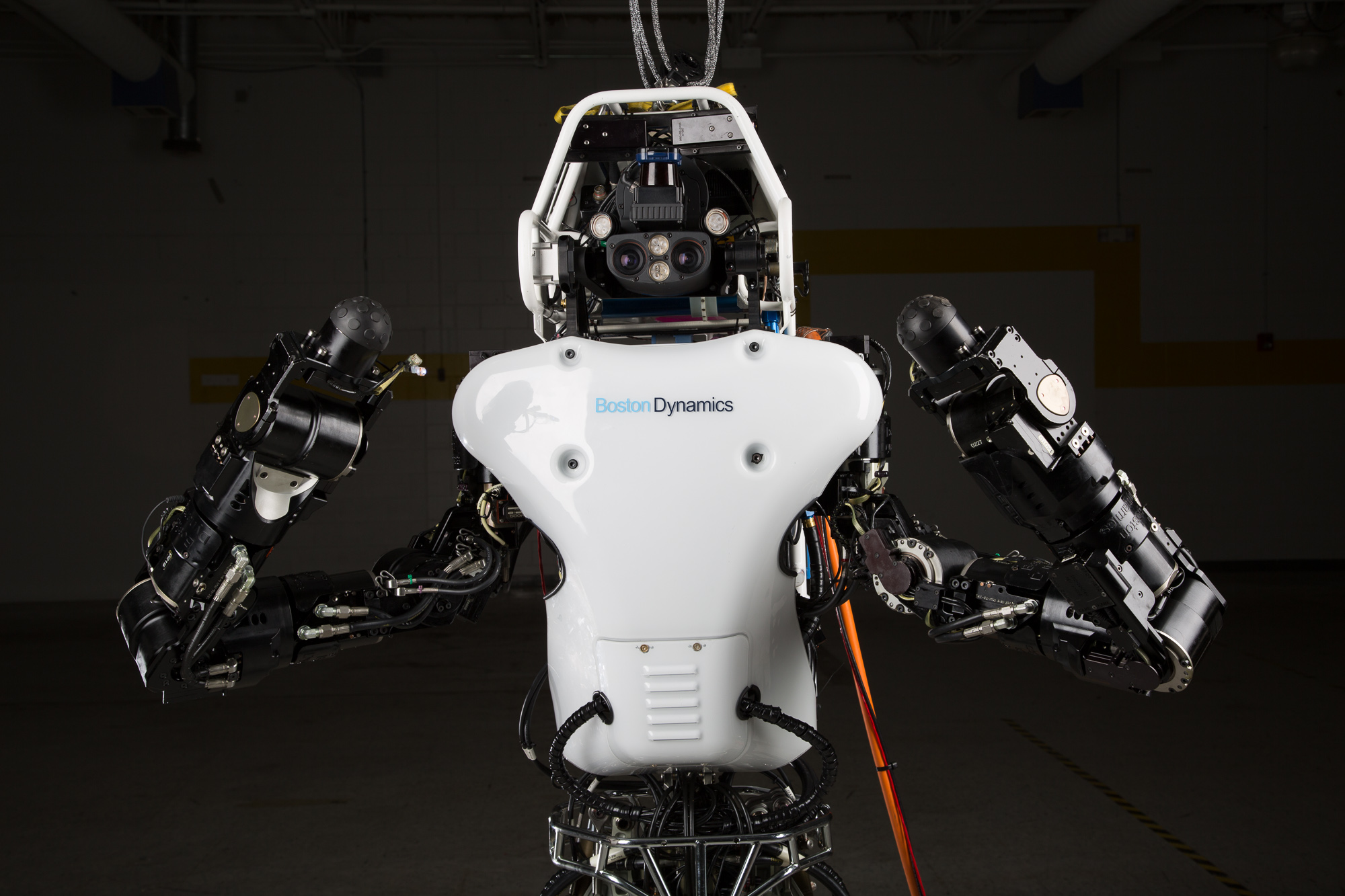
General Robert Cohen says that by 2030, a quarter of US military units could be replaced by robots . The US Army is seeking to transform into an army that will have a smaller scale and will be able to easily unfold in different places . Robots will help cope with this mission. DARPA actively aims to create search and rescue robots, such as Atlas . Such is the Spot from Boston Dynamics - a 160-pound, four-legged robot that looks like a dog:
Discovery Lab has developed an initial prototype of the TeleBot robot, which combines the function of telepresence so that police officers and military personnel with disabilities can work as patrolmen.
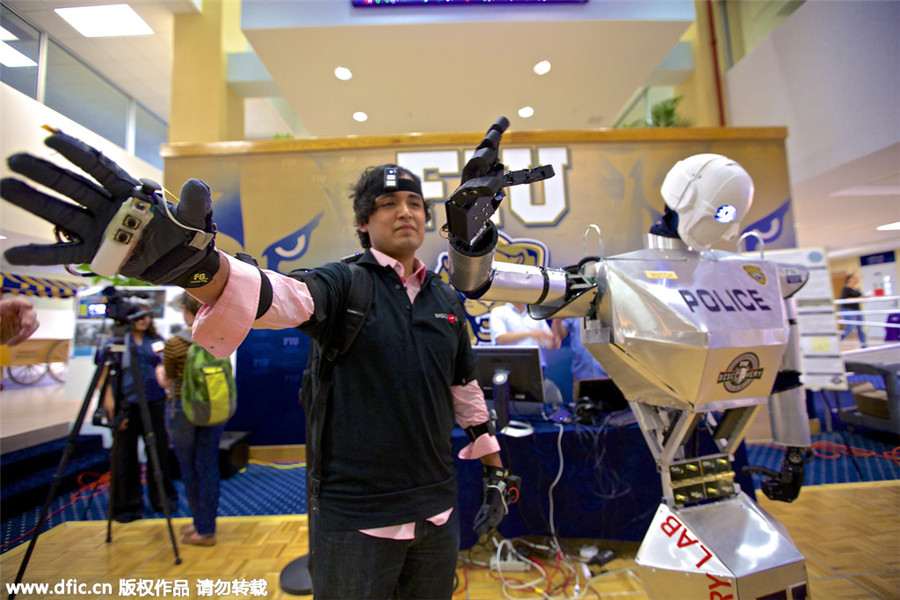
Farmer
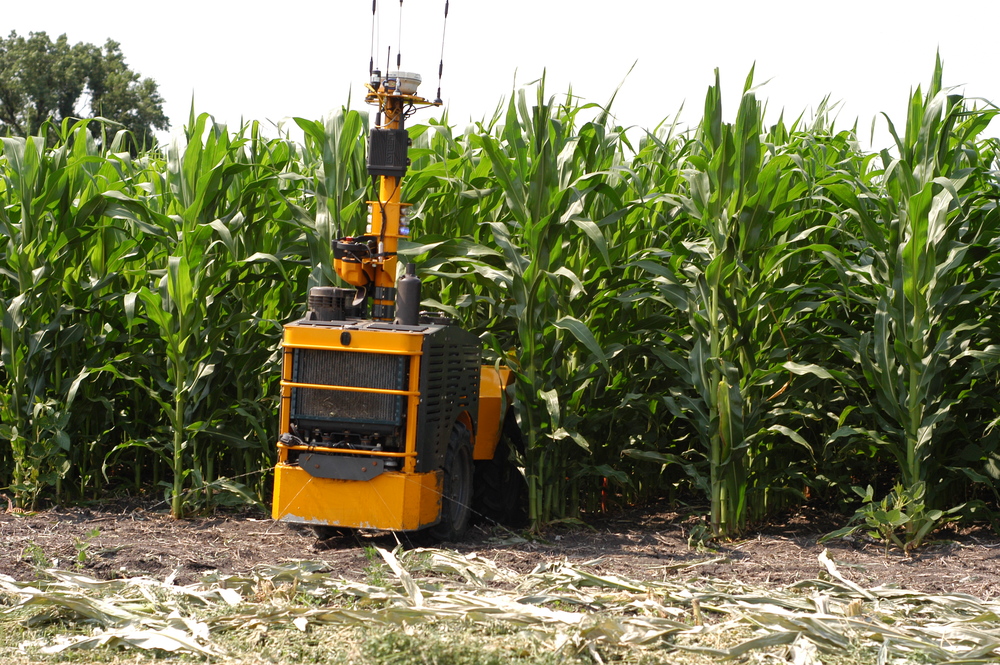
According to analysts from IBIS World, robots can show a good result when it comes to agricultural work , such as inspecting the condition of the soil, driving tractors and harvesting . Many robots are currently used for weeding and harvesting.
Journalist
Sports and business reporters fall into the category of the most susceptible to substitution . In fact, a program developed by Narrative Science can write short various news for clients.
But it is believed that robots do not cope well with creative texts, so novelists and artistic authors do not need to worry about their workplace.
Lawyer
Clients pay millions of dollars to lawyers for work that robots can do better . Blackstone Discovery provides services for viewing cases, searching phrases, and retrieving values using robots.
Right is not the most creative industry in the world. But can robots end up doing lawyers? Robot & Hwang may someday become a competent local cyberspace lawyer , but he cannot win a strong appeal group.
The initiative to replace lawyers with robots comes from Silicon Valley. The basis of a startup called Lex Machina is an information resource of IP Litigation Clearinghouse at Stanford University:
Source: https://habr.com/ru/post/390227/
All Articles